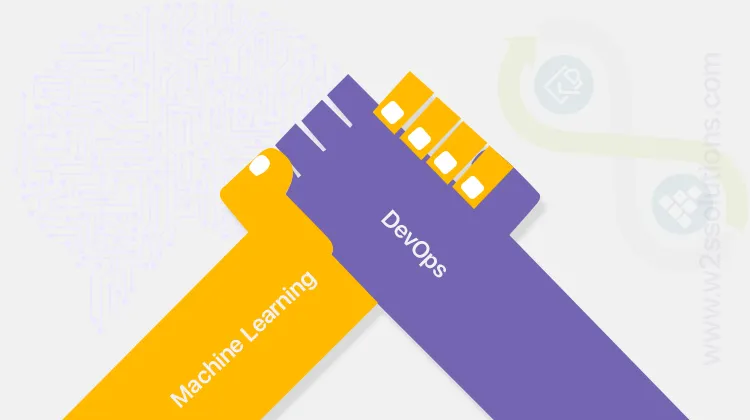
The Role of Machine Learning and DevOps in the Present Times
Machine learning, the Artificial Intelligence application that facilitates systems to learn as well as improve from experience, without having to depend on being programmed manually for each of such instance is gaining momentum in recent times. There has been a noticeable rise in machine learning and related capabilities such as artificial intelligence and predictive analytics. This demands contemporary organizations to go for exploring implementation of mathematical algorithms-based data analysis model.
DevOps, the exclusive software engineering practice that aims at unifying software operation and software development, has been instrumental in exponentially improving software development related to increasing both productivity and quality. The relationship between DevOps and Machine Learning is evident, and is capable of improving the ability of organizations to analyze and manipulate huge volume of data in a rapid and accurate manner than any human resource. Here’s where app development companies find the combo of machine learning and DevOps effective.
The Machine Learning and DevOps Connect
There exists a strong synergy between Machine Learning and DevOps that extends to certain related aspects such as Artificial Intelligence, Predictive Analytics, and IT Operations Analytics. Quite a few DevOps methodologies are seen to surge high and generate huge variety and volume of data throughout the project lifecycle, starting with development through deployment through performance management. The ultimate goal of DevOps, automation, can be accomplished by harnessing the data by using a robust and reliable analysis system.
A huge volume of data is generated by successful DevOps practices; such large volume of data has the capability to draw insights that are helpful in workflow streamlining, production monitoring, and issue predictions. The voluminous data produces predictable result. Generally, teams do not involve in reading the data that is populated directly but they do ensure a threshold of some specific activity to declare that as problematic. It is customary that DevOps teams, rather than looking for data individually, look for the exceptions that arise. Here’s where machine learning plays a vital role in analyzing such data and drawing meaningful insights.
How Does Machine Learning Fit into DevOps Methodology and Help
Implementing machine learning in DevOps results in two distinct benefits: reduction of noise-to-signal ratio and replacement of reactive mode with proactive approach that is based on accurate predictions. Most teams are using the threshold approach that is based on habit, gut feelings, and conventional wisdom for monitoring.
Compared to this, the machine learning approach, that is more mathematical, is grounded. Here, models and methodologies such as classification, linear and logistic aggression, and deep learning are being used for scanning huge sets of data. Identifying correlations and trends and making predictions are enabled. Threshold defining is based on what is logically sound and statistically significant.
Benefits Achieved by Gelling Machine Learning with DevOps
Root Cause Identification: Machine Learning helps in discovering the root cause, enabling the teams to fix performance issues at one strike.
Learning from Mistakes: Issues caused by mistakes committed by DevOps teams can be located and rectified by Machine Learning systems that help in analyzing the data and portraying what has taken place.
Development metrics can be Viewed Differently: Collecting data about aspects such as bug fixes, delivery velocity, and continuous integration systems is enabled.
Fault Prediction: Machine Learning application helps draw meaningful insights from the data produced by monitoring tools during failure generation.
Orchestration Measurement: Orchestration process monitoring becomes easy; team performance can be evaluated effectively with the help of Machine Learning.
Going Beyond Threshold Setting: With voluminous data, DevOps teams are held up with setting thresholds rather than analyzing the entire data –Machine Learning applications help with predictive analytics.
Key Areas of Machine Learning Use
- Production failure prevention
- Triage analytics and troubleshooting
- Production management
- Application delivery assurance
- Alert storms
The Need for Combining Machine Learning with DevOps
An increased number of next generation tools related to DevOps have started supporting machine earning to varied extents. Coordinating machine learning with the current business demands additional knowledge from the part of programmers.
Today’s DevOps engineers have to be aware of how to code, know how the infrastructure works, and learn how DBaaS can be utilized in the cloud. Most of the contemporary DevOps engineers not being mathematicians, it is a huge challenge to add machine learning skills to the skill sets mentioned here. Read More..